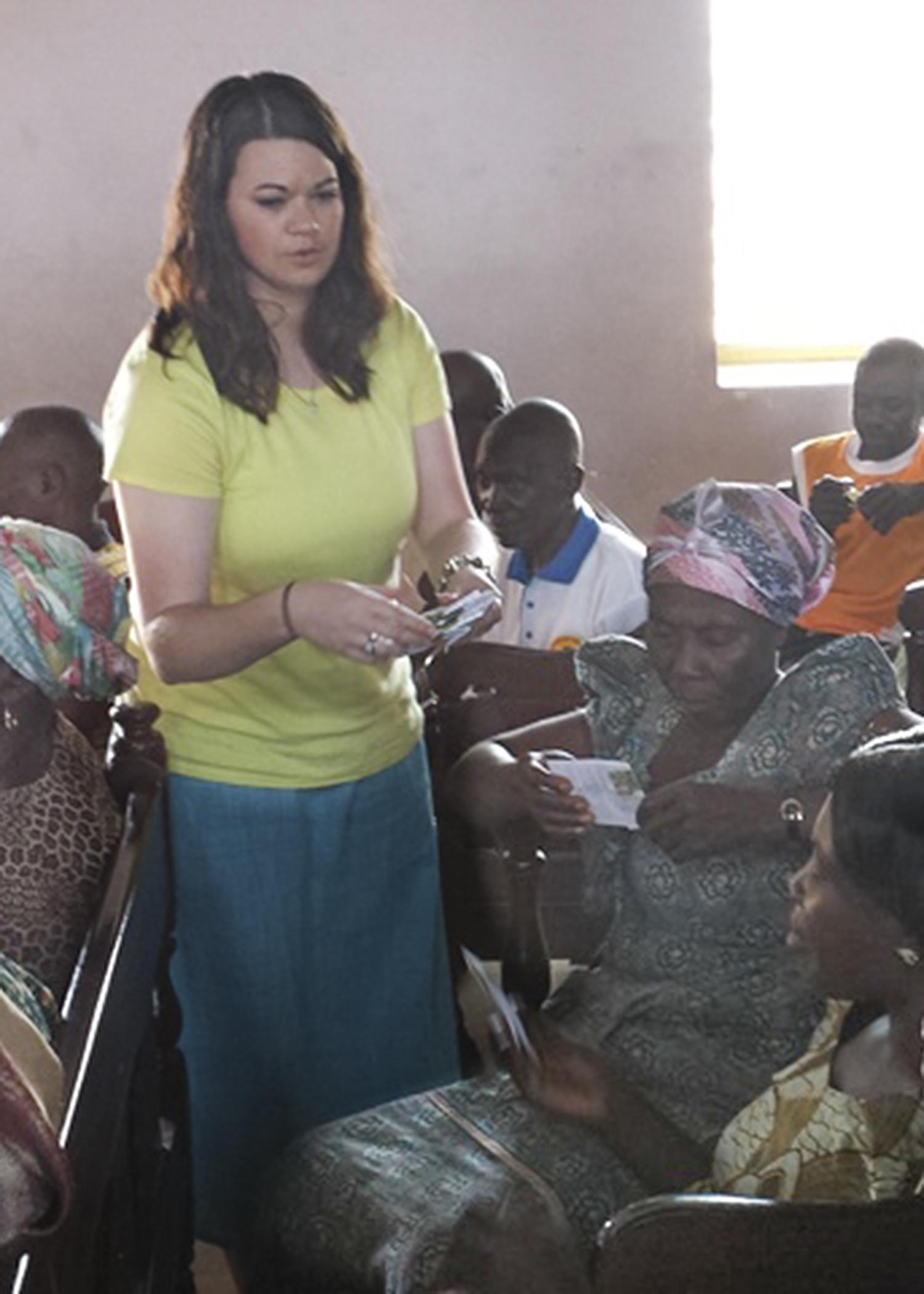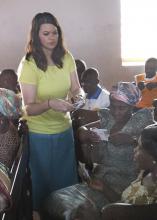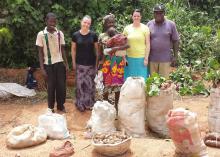Information Possibly Outdated
The information presented on this page was originally released on July 11, 2014. It may not be outdated, but please search our site for more current information. If you plan to quote or reference this information in a publication, please check with the Extension specialist or author before proceeding.
MSU student performs grad research in Ghana
MISSISSIPPI STATE -- People like graduate student Alyssa Barrett are turning the Mississippi State University goal of international outreach into reality.
Barrett, a master’s student in agricultural and Extension education from Wiggins, went to the West African nation of Ghana in March to collect data for her thesis, which is examining the effectiveness of an agricultural education program. In 2013, she traveled to Nigeria to teach the same agricultural program.
“I’ve gotten a good perspective on doing actual research in a developing country as well as teaching in a developing country,” Barrett said. “I’ve found I really want to do outreach programs in international agriculture.”
Barrett traveled to Ghana with Global Care Link of Starkville. Her primary task was to help with the ag workshops, facilitate learning and collect data. The workshops taught local farmers how to use indigenous plants and organic materials for personal health or in crop production as fertilizers, pesticides and more.
“I wanted to see the knowledge gained from the workshops, so we used pre- and post-tests to determine if we made a difference,” she said. “We also wanted to learn their intent: do those we taught plan to use this information for their farms or personal health?”
The two workshops were held in the villages of Agona Nyakrom and Gomoa Enyeme near Winneba in the Central Region of southern Ghana. About 100 people attended each workshop.
Barrett, who earned her bachelor’s degree in agricultural sciences from MSU in 2013, said the experience gave her tremendous insight into the need to take cultural aspects into account when designing and offering educational programs. Program effectiveness is influenced by factors such as literacy, language fluency, infrastructure and even the way a society views time.
MSU has placed an emphasis on international outreach, with special focus on food security matters. Michael Newman, director of the MSU School of Human Sciences, said the school is pursuing two goals.
“We want to help people around the world by sharing some of our expertise with them, and we also want to learn from them,” he said. “Anything that we can do to help people in developing countries shows up in an increased standard of living for them. That also has long-term benefits to the U.S.”
When MSU students have the opportunity to work and study abroad, it gives them a global perspective and helps build MSU’s reputation internationally.
Barrett was accompanied on the trip by her major professor, Laura Lemons, a leadership expert in the MSU School of Human Sciences. She also helped teach the agricultural education curriculum and collect data on knowledge gained.
“We are interested in expanding our reach and positioning Mississippi State on the global map,” Lemons said. “We hear the projections of a world population of 9 billion people by 2050, and food security is a big issue. As researchers and educators, we have a global responsibility to help and to educate where and when we are able.”
Lemons teaches in MSU’s agricultural information science and education program and is acutely aware of food security issues around the world.
“The Extension system in the state and nation does a fantastic job working for and with agriculturalists,” Lemons said. “While not neglecting things at home for the sake of those abroad, it is important that we help bolster food security around the world.”




